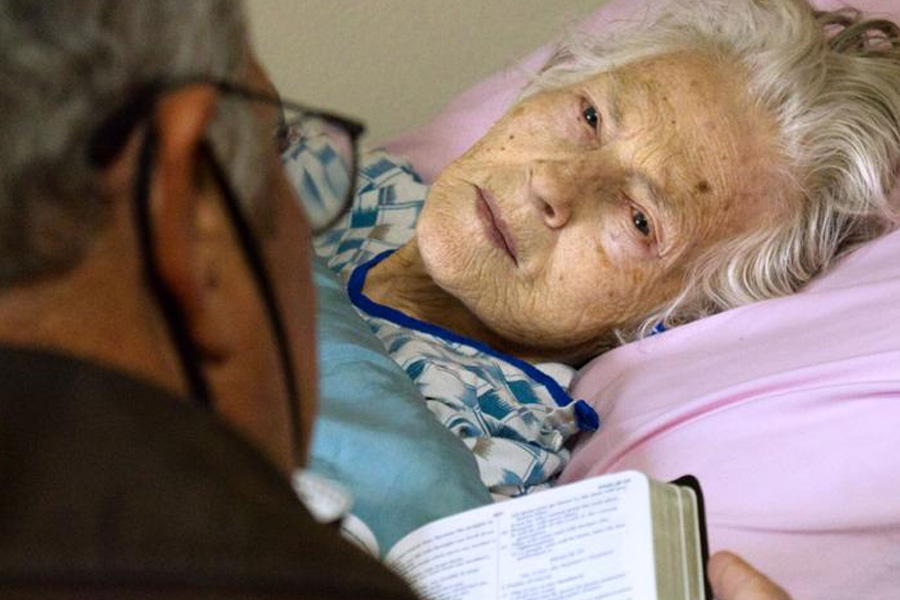Now Reading: Plan for Peace: A Toolkit for Serene Senior End-of-Life Journeys
-
01
Plan for Peace: A Toolkit for Serene Senior End-of-Life Journeys
Plan for Peace: A Toolkit for Serene Senior End-of-Life Journeys

Why planning ahead matters
Talking about the end of life is awkward and heavy, yes — but it’s also one of the most practical, loving things we can do for ourselves and the people who will care for us. Put simply: a plan saves emotional energy, reduces chaos, and creates space for dignity. When paperwork, wishes, and choices are already out in the open, grief can be allowed to be grief instead of a frantic scavenger hunt through drawers and email threads. Think of planning as a gentle map: not a rigid itinerary, but a terrain that guides people toward the right decisions when their hearts are full and their heads are not.
Starting the conversation
Start small. Over coffee, during a walk, or on a lazy afternoon; the point is to open the door, not to stage a formal meeting. Ask simple questions like, “What matters most to you?” or “Who would you trust to make decisions if you couldn’t?” Listen more than you speak. Let stories and memories lead the way. These conversations are rarely one-and-done; they unfold over time, with pauses, tears, smiles, and sometimes laughter. Keep the tone honest and curious, and give everyone room to change their mind.
The emotional toolkit
End-of-life planning isn’t only legal forms and logistics — it’s a deep emotional process. Expect grief, guilt, relief, anger, and love to show up in various combinations. Normalize feelings. Practice empathy: ask open questions, reflect what you hear, and offer presence rather than solutions. Professional support — counselors, spiritual advisors, or support groups — can be lifelines when emotions are overwhelming. Remember: patience and small gestures matter as much as paperwork.
The medical toolkit
Advance care planning is the practical heart of medical preparedness. An advance directive or living will spells out preferences for life-sustaining treatments like feeding tubes, ventilators, and resuscitation. A Do Not Resuscitate (DNR) order is an option for those who prefer not to have CPR attempted. Appointing a health care proxy or medical power of attorney names the person who will faithfully translate values into choices when someone can’t speak for themselves. These documents reduce confusion and protect the patient’s voice in critical moments.
The legal toolkit
Legal clarity prevents family conflict and messy court delays. Wills and trusts define who receives what, while trusts often help avoid probate and keep things private and faster. A financial power of attorney enables someone trusted to manage bills, retirement accounts, and day-to-day finances if incapacity occurs. Probate can feel intimidating; working with an estate attorney or experienced firm simplifies the path and keeps paperwork from becoming a burden during grief.
The personal touch
Legacy letters, recorded stories, and lists of favorite rituals are the soulful parts of planning. These are not legal documents; they are heart documents. Write down favorite music, rituals you want honored, pets you want included, or who should tell which funny story at a service. Record the small, human preferences that shape how you want to be remembered — a favorite chair at the funeral, a recipe to be passed along, or a particular poem to be read aloud. Those details are the threads that make an end-of-life experience feel tender and personal.
Digital life and important records
Make a clear inventory of online accounts, passwords, and instructions for what should happen to digital content. Decide whether social profiles should be memorialized or deleted, and keep a secure list (a password manager is ideal) so your trusted person can follow through. Also gather essential paperwork — insurance policies, account numbers, deeds, and beneficiary information — and keep them accessible to the people who will need them.
The financial toolkit
Money matters can dictate options for comfort, care, and choices in the final years. Catalog existing health insurance, long-term care policies, and life insurance. Consider pre-planning or pre-paying funeral expenses to reduce the financial and emotional load on loved ones. Budget realistically for home care, assisted living, or hospice — yes, it costs money, and early conversations make hard decisions easier when the time comes.
The comfort toolkit: palliative and hospice care
Palliative care focuses on symptom relief and quality of life and can be used alongside curative treatments; hospice care concentrates on comfort and support when life expectancy is limited, commonly for the final months. Both prioritize dignity and support for family caregivers, and both can be delivered at home. Think of these services as comfort-first options: symptom management, emotional support, and practical help so that the last chapters are lived with as much ease as possible.
Support for caregivers
Caregiving is love in action, but it’s exhausting without boundaries and backup. Caregivers should plan for regular respite, accept offers of help, and join communities for practical tips and emotional solidarity. Self-care is non-negotiable: short breaks, sleep when possible, and asking for help are signs of strength, not failure. The better cared-for the caregiver is, the better the care the loved one receives.
The spiritual toolkit
For many people, spiritual reflection is the most meaningful part of end-of-life planning. Whether through prayer, meditation, ritual, or time outdoors, spiritual practices bring perspective and peace. Meaningful conversations about values, forgiveness, and gratitude can provide profound comfort. Allow room for mystery; sometimes acceptance is its own kind of grace.
Putting it all together
Talk. Write it down. Appoint trusted decision-makers. Revisit plans as circumstances change. You don’t need a perfect plan — you need a true one: clear, honest, and aligned with the life the person led. Planning is an act of care that turns an overwhelming future into a map someone else can follow with confidence and love.
FAQ
What is an advance directive and why do I need one?
An advance directive is a legal document that states your medical preferences if you cannot speak for yourself; it helps ensure your choices guide care when decisions are urgent. Having one reduces family uncertainty and aligns treatment with your values.
How is palliative care different from hospice care?
Palliative care treats symptoms and improves quality of life at any stage of illness, while hospice focuses on comfort during the final months when curative treatment is no longer pursued. Both prioritize comfort and support but apply in different clinical windows.
Who should I choose as my health care proxy?
Choose someone who truly knows your values, can stay calm under pressure, and will advocate for your wishes even when emotions run high; pick someone dependable rather than simply the eldest family member. It’s also wise to name an alternate in case the first choice is unavailable.
What’s the difference between a will and a trust?
A will outlines who gets your assets and may require probate; a trust can transfer assets privately and may avoid probate, offering more speed and secrecy. Which is right depends on your estate size, privacy concerns, and family needs.
How do I handle digital accounts and passwords?
Create an inventory of accounts and a secure plan for access, preferably using a reputable password manager, and leave clear instructions for memorialization or deletion. Make sure a trusted person knows where to find this information.
When should I involve professionals like lawyers or hospice teams?
Involve lawyers for estate planning and trusts, and bring in hospice or palliative teams when symptom control or end-of-life support becomes a priority; professionals reduce burden and provide expertise during emotional times. They exist to make practical tasks manageable so the family can be present.





















